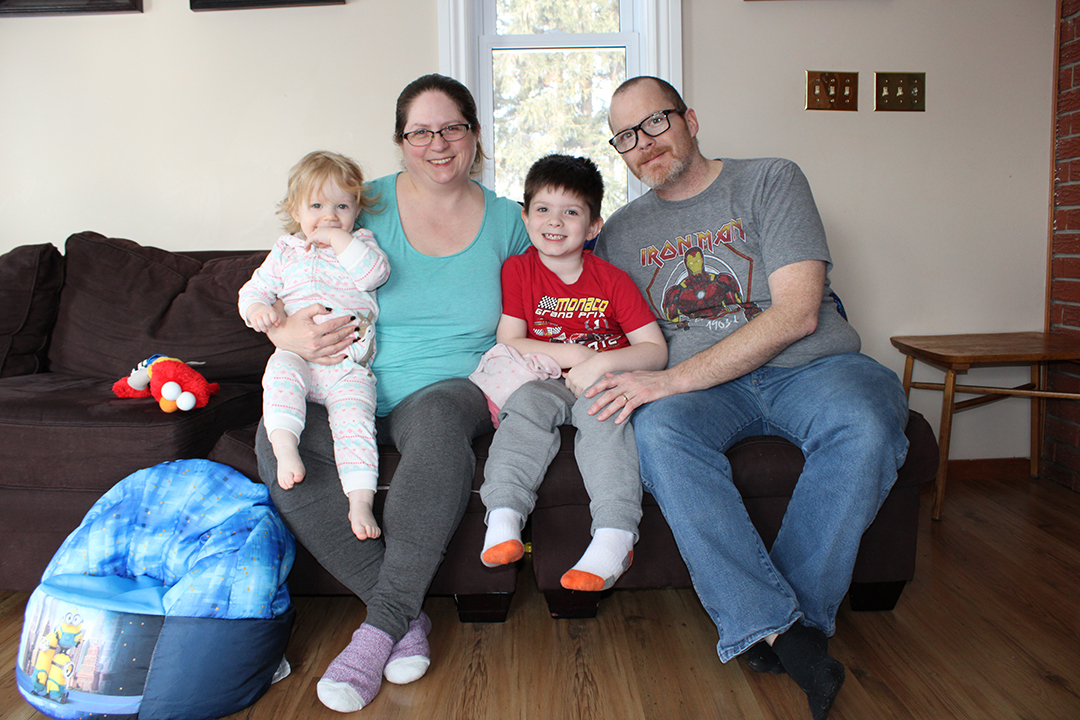FERGUS – On Feb. 6, the Progressive Conservative government announced major changes to autism therapy funding in Ontario. The aim is to process over 23,000 children on waitlists.
The new program, which will take effect April 1, provides funding for treatment directly to families that qualify, instead of through regional service providers.
Families will now be eligible to receive up to a total of $140,000 per child until they turn 18. Children that enter the program at seven years-old or older are eligible to receive $55,000 in total. The government has also doubled the province’s investment into autism diagnostic hubs.
However, Autism Behavioural Services founder Freya Hunter says the changes will decrease the quality of and access to treatment.
“I think it’s incredibly disrespectful to our kids and to our individuals diagnosed with autism,” she said.
When the Advertiser spoke to Hunter on Feb. 15, she was on her way to a rally to protest the funding changes in Guelph.
“They are hitting everybody in all the wrong places. It’s not enough for what these kids need,” Hunter added.
Her organization offers applied behavioural analysis (ABA) and intensive behavioural intervention (IBI) therapy at centres in Fergus, Orangeville and Owen Sound.
According to Hunter, $140,000 does not even cover two years’ worth of intensive therapy.
“The average therapy cost…is anywhere … between [$60, 000 to $100,000 annually] for an intensive program,” said Hunter.
The funding is also capped annually, with children under six years old eligible to receive $20,000 per year and those over seven eligible to receive $5,000.
The changes have parents like Melissa Millard of Fergus fearful of what gaps in treatment could mean for their children’s future.
Millard said when she heard the news, she was “absolutely devastated.” Her son William, now five, was diagnosed at age two but it took longer for the Ontario government to acknowledge his diagnosis.
The Millards were denied funding from the province at least five times and they still do not receive funding for his disability from the federal government.
“We have been fighting for so long… it’s been a complete struggle to even get the government to even recognize my son as being disabled,” Melissa said.
Though William has been diagnosed as high-functioning on the spectrum, he requires and currently receives 21 hours of treatment per week.
“He has to try and communicate to me what he wants and it’s very hard for him. It gets frustrating and he gets angry because he has got it in his head but he can’t get it out,” she explained.
Currently therapists and doctors provide documentation outlining the therapy William needs to the Millards’ regional service provider, which would then grant funding (there is no cap).
Once the provincial changes take effect, William will not receive close to 21 hours.
“He doesn’t even get any funding after he is graduated out of the system so, for me, this is all I get,” said Millard.
“This is his only chance to know how to be social and to learn how to speak properly and how to interact properly and how to make friends.”
She explained she works five jobs so she and her husband Shawn can afford specialized child care for William and their younger daughter Elizabeth.
Hunter said there are thousands of families who share the Millards’ concerns.
“Minister (Lisa) McLeod … stands up in front of literally everyone on TV and vents… everyone has different needs. To turn around and say I am going to implement a one-size-fits-all program … It doesn’t make sense that she can just declare this,” said Hunter.
The direct funding is also based on income. Families that make over $250,000 per year are not eligible to receive any funding.
Hunter said it may sound great to say that the government is going to eradicate waitlists, private service providers like her centre do not have enough resources to take on the massive influx of new children.
There is currently a shortage of ABA workers across Ontario, she added.
“I think it sounds lovely … (but) everyone is just going to be put back on a different waitlist,” Hunter said.
She also noted that doubling investments into diagnostic hubs sounds good, but will have major drawbacks, particularly for families in Wellington County.
The dedicated diagnostic hub for families in Wellington County will be situated in Barrie.
According to both Hunter and Millard, the hope now is the changes get overturned and the current program is reinstated.
“The Ontario Autism Program that is implemented right now is not the most ideal, I’ll agree with that,” said Hunter.
“It needs some changes and it needs some tweaks, but what they are doing is literally taking away everything from our kids.”




